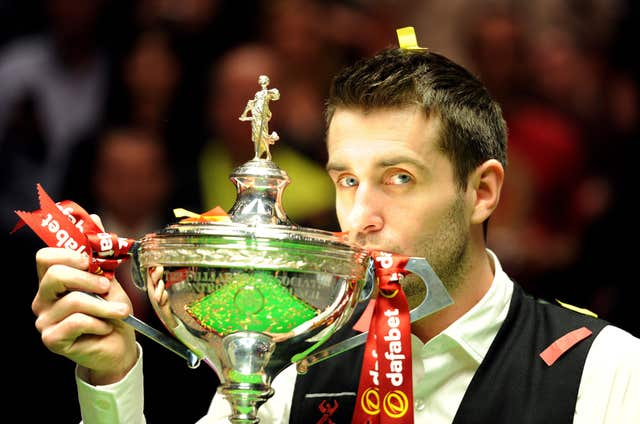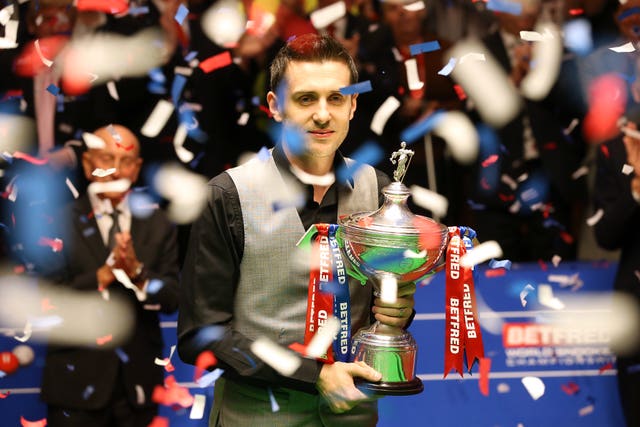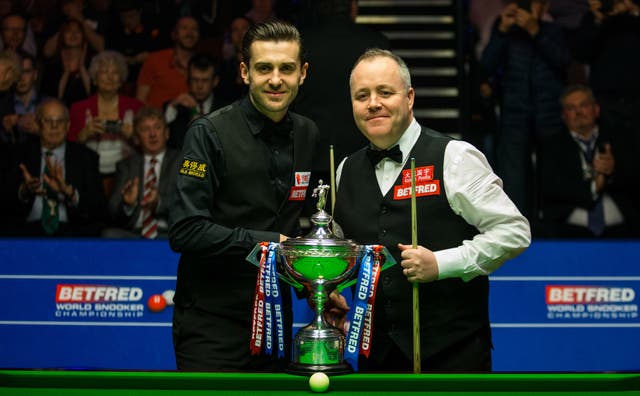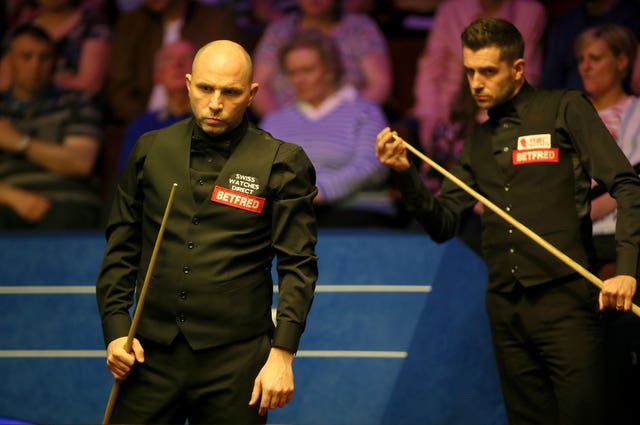Four years ago this month Mark Selby stood astride the snooker world, having picked up his third world title, pocketed a record £930,000 in a single season and courted the plaudits of some of his sport's all-time greats.
Vanquished finalist John Higgins, whom Selby had sunk from a seemingly hopeless 10-4 deficit, predicted his conqueror would go on to challenge Stephen Hendry's record of seven Crucible titles, while Hendry himself said Selby would dominate the game "for a very long time."
Instead, Selby's career unravelled so spectacularly that the question quickly became not whether he would manage to add multiple more crowns to his world title haul, but whether he would ever again grace the biggest stage in his sport.

Alarm bells began ringing long before Selby crashed out of the 2018 tournament in a first round defeat to Joe Perry. He would fail to win another British-based ranking title in two-and-a-half years and long-standing off-field issues reared their head to hamper his recovery process.
Selby had never made any secret of his difficult start in life, with his mother leaving their family home when he was nine years old, then losing his father David to cancer in 1999.
But it was only in a series of interviews early in 2021 that he revealed the extent of his heartbreak, and how the apparent unravelling of his home life had led him to suffer suicidal thoughts.

All of which serves to make Selby's gritty clamber from an inauspicious start in the game – he joined the professional tour at the age of 16, just two months after his father's death and having left school without any qualifications – to a position as one of the sport's all-time greats all the more remarkable.
He thumped Higgins in the first round of the 2006 World Championship, going on to crack the top 16 for the first time at the end of the subsequent season, and reached the semi-finals of the 2007 UK Championship.
Success would soon start piling up for Selby, who won the Masters in 2008, the UK crown in 2012 and his first world title two years later, by seeing off Ronnie O'Sullivan.

Selby's attritional approach to the game has not always found favour, with O'Sullivan dubbing him the 'Torturer', and Eurosport commentator Neal Foulds criticising him for taking more than six minutes to play a shot against Higgins in the Northern Ireland Open in 2019.
But as inevitable as it was that Selby would chisel his way to multiple world crowns – he won his second over Ding Junhui in 2016 before successfully defending it against Higgins – so the extent of his fall from grace was remarkable, as he slumped to sixth in the rankings and lost any semblance of his trademark, world-beating consistency.
But for a series of title wins in China during the period, the damage could have been so much worse, but Selby rallied and began to show glimmers of his own self when reached the semi-finals of last year's World Championship, where he suffered a dramatic and acrimonious exit to O'Sullivan.

Afterwards, O'Sullivan dubbed Selby a "bad loser", which only served to exacerbate the perception of the Leicester player as a slogger in the guise of golden-age grinders like Cliff Thorburn and Terry Griffiths, and an antidote to the flashy new generation typified by the emergent Judd Trump.
It is a reputation that will undoubtedly stick – Selby was warned by referee Ben Williams for slow play during his semi-final win over an exasperated Stuart Bingham and there were evident boos mixed with the cheers when he strode out for the final session of his match with Shaun Murphy.
Selby shrugged off the all finger-pointing, maintaining none of it bothered him one bit. With the recent assistance of acclaimed snooker coach Chris Henry, he has reached the kind of happy place he feared he would never see in the dark days of that post-2017 slump in form.
Standing next to wife Vikki, cradling his young daughter Sophia in his arms and with a fourth World Championship trophy perched on the table next to him, Selby simply vowed to shut out the critics and reclaim his position as the dominant force in his sport.
Having already won much bigger battles, he appears better-equipped than ever to do just that.
/https%3A%2F%2Fsportsmole-media-prod.s3.gra.io.cloud.ovh.net%2F16%2F18%2Fmark-selby.jpg)
/https%3A%2F%2Fsportsmole-media-prod.s3.gra.io.cloud.ovh.net%2F25%2F19%2Fzhao-xintong.jpg)
/https%3A%2F%2Fsportsmole-media-prod.s3.gra.io.cloud.ovh.net%2F24%2F46%2Fmark-king.jpg)